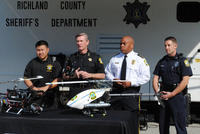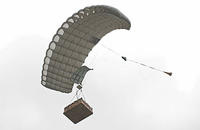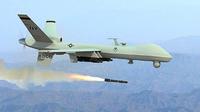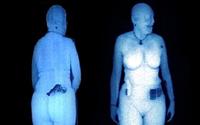-
Oklahoma police to get wearable cameras
Police officers in Owasso, Oklahoma may soon all be wearing video cameras on their bodies; patrol cars already house cameras in their dash board to record a police officer’s actions, but the Owasso Police Department wants each of its thirty-nine agents to wear a camera at all times; the cameras are designed to increase transparency, accountability, and help stop “the constant litigation that police face on a basis, complaints, and false accusations” by providing undisputable video evidence of what occurred; the cameras will cost $900 per unit
-
-
South Carolina police departments unveil aerial drones

Two local police departments in South Carolina recently unveiled the latest additions to their arsenal of law enforcement tools — remote controlled mini helicopters; these small helicopters are equipped with cameras and will allow police officers to conduct aerial surveillance, search for missing persons, or monitor dangerous situations from a distance; the remote controlled vehicles cost about twenty-five cents in electricity to charge the battery and less than $4,000 to purchase, far cheaper than full size helicopters; the drones’ battery can last for up to forty minutes, and helps it run silently making it ideal for discrete surveillance
Two local police departments in South Carolina recently unveiled the latest additions to their arsenal of law enforcement tools – remote controlled mini helicopters. -
-
Safeguarding the private and public sector from insider threats
While most discussion of insider threats have focused on cyber security concerns, a recent panel at the Government Security Convention and Expo in Washington, D.C. discussed the potential physical threats posed by insiders;businesses, government agencies, and other organizations are vulnerable to a host of threats from insiders including corporate espionage, workplace violence, and the loss of sensitive materials or data; panelists discussed efforts to reform the Federal Protection Services, which is charged with securing roughly 9,000 federal facilities, the latest technologies in detecting cell phones in secure areas, new body scanners, as well as the legality of stepped up security measures
-
-
Kentucky releases homeland security terrorist reporting app

Kentucky’s Office of Homeland Security (KOHS) recently released an iPhone app designed to allow people to anonymously report any suspicious activity they see; the app, called, Eyes and Ears on Kentucky, captures tips in real-time and is capable of providing additional information using the iPhone’s camera and GPS features; the app comes as part of the broader national DHS “See Something Say Something” campaign which will gather tips from across the nation and allow local, state, and federal law enforcement officials to sift through reports of any suspicious activity
-
-
Security cameras to be installed at all DC metro stops

In response to a rash of crimes near Washington, D.C.’s metro stations, local authorities recently announced plans to install security cameras outside all eight-six train stations; the Metro Board’s Safety and Security Committee released a report several weeks ago that found that last year the number of thefts and robberies had hit five-year highs; the Board has purchased 153 color cameras thanks to a $2.8 million DHS grant; with violent crimes around the Metro on the rise, more residents have begun to push for the installation of security cameras
-
-
China clamps down further on Internet to prevent unrest

The Chinese government has eyed the protests sweeping across the Middle East and North Africa with growing unease; to quash the prospect of wide spread protests at home, the government has increasingly clamped down on the Internet and other forms of communication; access to Facebook, YouTube, and Twitter have been blocked while government agents are more carefully monitoring cellphone calls, electronic messages, and emails; residents say they have never seen such high levels of censorship before
-
-
DigiSensory cameras predict crime before it happens
With DigiSensory Technologies’ sophisticated cameras and sensor systems, law enforcement agencies and transportation departments across the United States are now able to proactively monitor and respond to crimes or accidents as they unfold; the company’s Avista sensors process the images that its 3.2 megapixel high-resolution camera records in real time and can automatically detect when a crime is occurring; when it senses something it will alert law enforcement officials instantly; the sensors can also assist transportation departments in analyzing traffic patterns in real time; the system could allow officials to change one way streets, design real time traffic signals, and multiple speed limits to make traffic flow more smoothly
-
-
Lockheed developing autonomous and covert rover
A surveillance robot aims to operate around humans without being detected by them; the machine uses a laser scanner to builds a 3D computer model of its surroundings and uses a set of acoustic sensors to distinguish the proximity and direction of footsteps
-
-
TSA considering "identity-based" screening
TSA does not call it “profiling,” but “identity-based screening”; the department is asking for public comments on the proposed system; “Physical screening will likely never go away completely, but the idea of adding identity-based security makes good sense and it’s an idea we’re actively exploring,” the department says
-
-
Precision parachute system for pin-point delivery of sensitive loads

Military units often operate behind enemy lines, and disasters often sever transportation links; in both cases, the provision of supplies — military or humanitarian — is a major issue; now there is a solution; the manufacturer says that the precision air-cargo parachute — classified as a UAV becasue of its navigation capabilities — is the only commercially available system in the world that can ensure the pin-point delivery of sensitive mission equipment, humanitarian aid, and supplies fully automatically from the air without damage
-
-
Israeli military intelligence to monitor groups critical of Israel
Israel believes that at least some of the organizations criticizing its policies pursue a broader agenda: the delegitimization of Israel; in response, Israel’s Military Intelligence several months ago created a unit within its research division, dedicated to monitoring left-wing groups; the new MI unit will monitor Western groups involved in boycotting Israel, divesting from it, or imposing sanctions on it; the unit will also collect information about groups that attempt to bring war crime or other charges against high-ranking Israeli officials, and examine possible links between such organizations and terror groups
-
-
Ex-CIA head praises drone warfare

More than forty people were killed in Pakistan last week in a U.S. drone attack near the Afghan border; despite the controversial use of drones, ex-CIA director Michael Hayden says they are winning the war; ten years after 9/11, al Qaeda’s leadership no longer enjoys sanctuary in the tribal areas of Pakistan where for many years, it has been able to plot and train its recruits
-
-
Surveillance tech developers capture Breakthru venture capital
Three academics from the University of New Brunswick were awarded $285,000 in cash, the richest entrepreneurship competition in Canada, to continue developing better surveillance camera technology
-
-
Jails turning to full body scanners

Cook County Jail in Chicago recently installed four full-body scanners to help improve security; officials say that the body scanners have enabled officers to better detect contraband items, hidden away in body cavities, and reduced the need for strip searches; the machines are located in the jail’s two maximum security areas as well as the initial processing area; officials say they plan to begin using body scanners at the Cook County courthouse to scan detainees before they enter the courtroom
-
-
Society over-reliant on vulnerable satnav systems

A new report warns that society has become “dangerously over-reliant” on satellite navigation systems, just two weeks after such a system was declared safe for guiding aircraft from space; the European Geostationary Navigation Overlay Service (EGNOS) works through a network of forty ground stations that gather positional data from the U.S.-run Global Positioning System (GPS) and beams that up to transponders aboard three satellites in geostationary orbits over Europe (part of the planned Galileo system); the more precise, amalgamated data is then sent back down to receivers aboard aircraft or other vehicles
-
- All
- Regional
- Water
- Biometrics
- Borders/Immig
- Business
- Cybersecurity
- Detection
- Disasters
- Government
- Infrastructure
- International
- Public health
- Public Safety
- Communication interoperabillity
- Emergency services
- Emergency medical services
- Fire
- First response
- IEDs
- Law Enforcement
- Law Enforcement Technology
- Military technology
- Nonlethal weapons
- Nuclear weapons
- Personal protection equipment
- Police
- Notification /alert systems
- Situational awareness
- Weapons systems
- Sci-Tech
- Sector Reports
- Surveillance
- Transportation
Advertising & Marketing: advertise@newswirepubs.com
Editorial: editor@newswirepubs.com
General: info@newswirepubs.com
2010-2011 © News Wire Publications, LLC News Wire Publications, LLC
220 Old Country Road | Suite 200 | Mineola | New York | 11501
Permissions and Policies
Editorial: editor@newswirepubs.com
General: info@newswirepubs.com
2010-2011 © News Wire Publications, LLC News Wire Publications, LLC
220 Old Country Road | Suite 200 | Mineola | New York | 11501
Permissions and Policies
